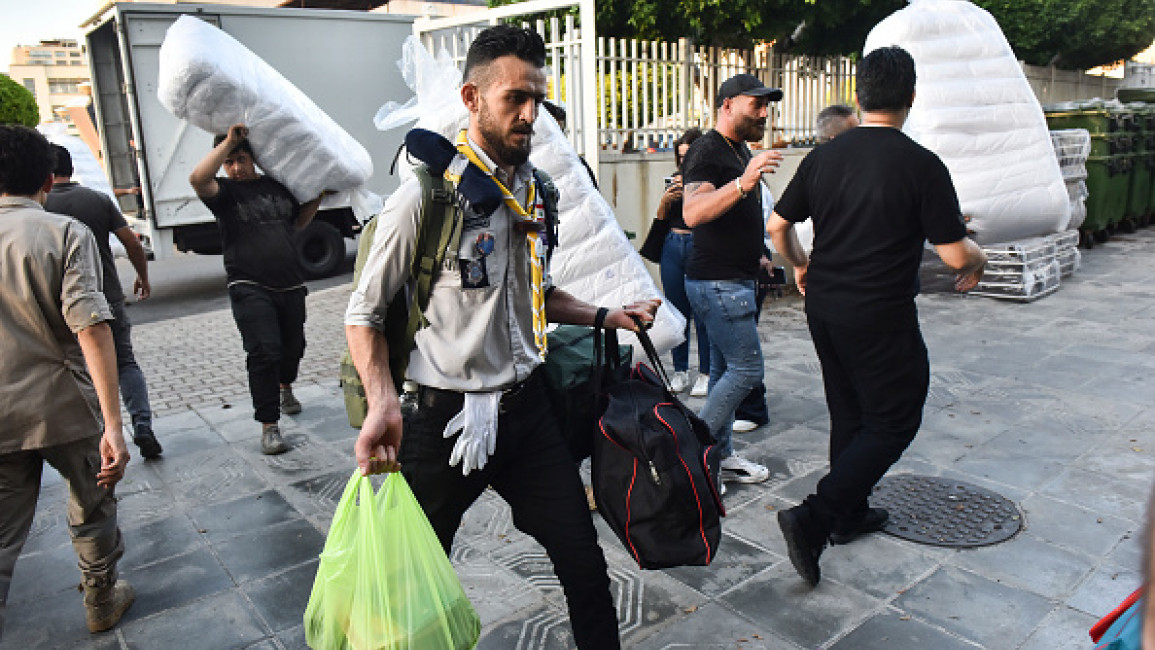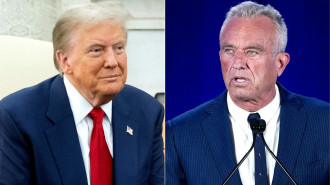Lebanon sets up shelters for thousands displaced after Israel unleashes 'deadliest day since civil war'
Israel continued its strikes on Lebanon overnight on Tuesday, in an escalation that has seen more than 26,000 Lebanese flee their homes.
Lebanese Minister Nasser Yassin told Reuters that 89 shelters have been set up for those displaced, mostly in schools and other public facilities.
On Monday alone, the Israeli army said it had struck some 1,600 sites across the border,
The Israeli strikes have so far killed 492 people, including 35 children and 58 women, according to Lebanese authorities, marking the deadliest day in the cross-border exchanges since the 2006 war between Israel and Hezbollah. A further 1,645 people have been wounded.
The death toll also marks the highest daily count in Lebanon since the country's civil war, which ran from 1975 to 1990.
Meanwhile, Hezbollah has fired dozens of rockets into Israel, with some barrages launching early on Tuesday morning.
Hezbollah confirmed in a statement that it had attacked the Kiryat Shmona settlement "with a barrage of rockets". The Israeli army said it had intercepted some of the rockets, while others "fell into open areas".
Amid the escalation, a number of airlines have cancelled services in both Lebanon and Israel.
EgyptAir said in a statement it had cancelled flights from Cairo to Beirut "until the situation in the country stabilises", while Qatar Airways has suspended services to and from Beirut's Rafic Hariri Airport until Wednesday.
Turkish Airlines and Pegasus Airlines have cancelled flights between Istanbul and Beirut. On Monday, Jordan had suspended flights to Beirut "until further notice".
Middle East Airlines, meanwhile, has increased services to Lebanon amid the wave of cancellations.
British Airways has cancelled flights to and from Tel Aviv, while flight data from the Flight Radar tracking website has shown that Wizz Air and Azerbaijan Airlines have also cancelled flights, according to the BBC.
Israel's intensified strikes on Lebanon follow months of cross-border exchanges with Hezbollah, which began firing into Israel on 8 October in response to Tel Aviv's latest war on Gaza.
Last week, Israel detonated thousands of hand-held electronic devices in Lebanon, killing at least 37 people and wounding around 2,900 others.
While Israel did not directly claim the attacks, Israeli defence minister Yoav Gallant said that a "new era" of war in Lebanon had begun.
Israel has said it wants to push Hezbollah further away from the border area, as Netanyahu's government has come under pressure to address the situation of those who had fled Israel's northern settlements.
The expansion of Israel's war has further raised concerns of a broader regional conflict, with Netanyahu's government appearing emboldened by the failure of efforts to end the assault on Gaza, where more than 40,000 people have been killed.







 Follow the Middle East's top stories in English at The New Arab on Google News
Follow the Middle East's top stories in English at The New Arab on Google News
![The new film casts Israeli actors to tell the story of Mary while leaving out Palestinians [Getty]](/sites/default/files/styles/image_330x185/public/2024-11/GettyImages-2172155541.jpg?h=199d8c1f&itok=wJWyXDEQ)
![Ben & Jerry's has taken Unilever to court for its alleged attempts to silence it [Getty]](/sites/default/files/styles/image_330x185/public/2024-11/GettyImages-2183900214.jpg?h=199d8c1f&itok=jEcYtQ64)
